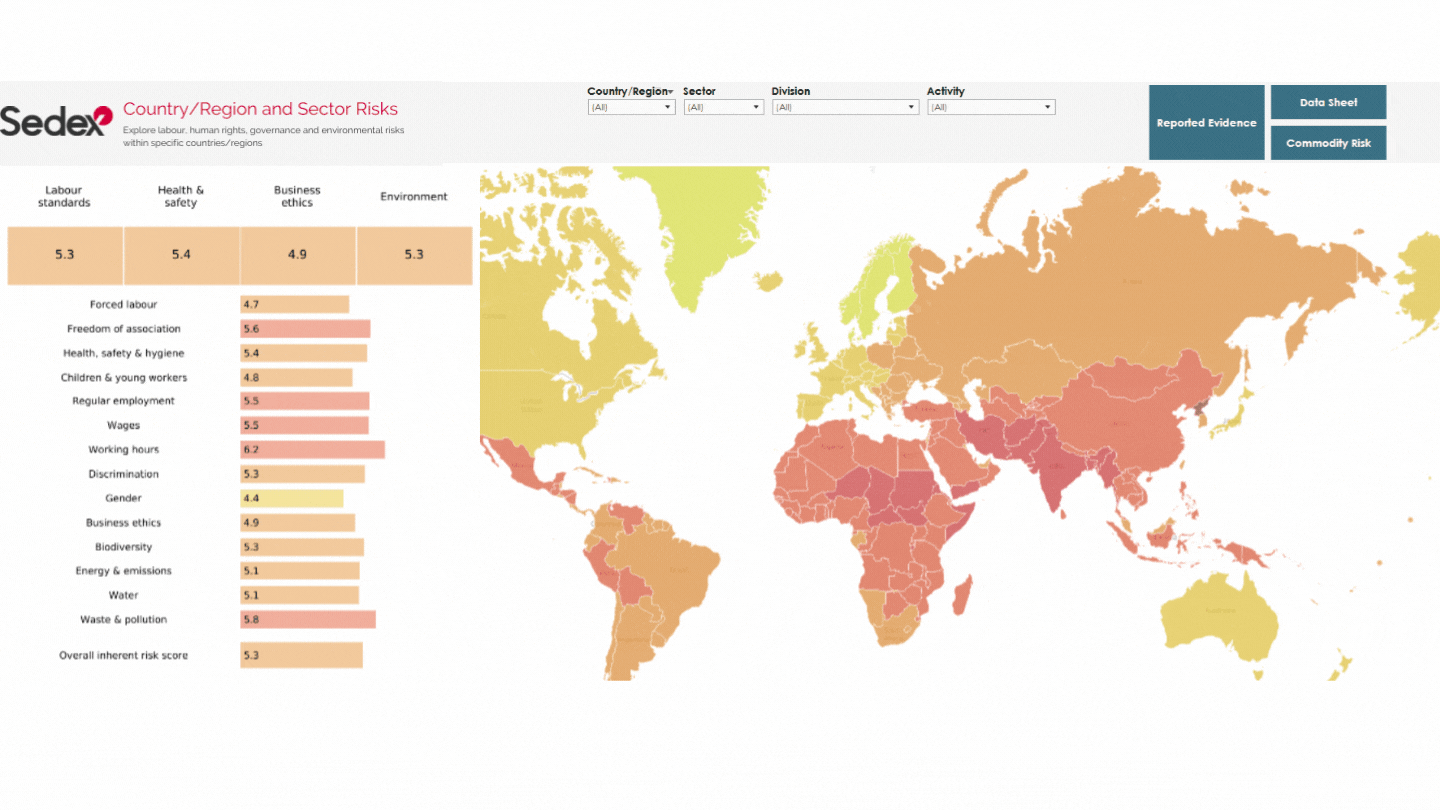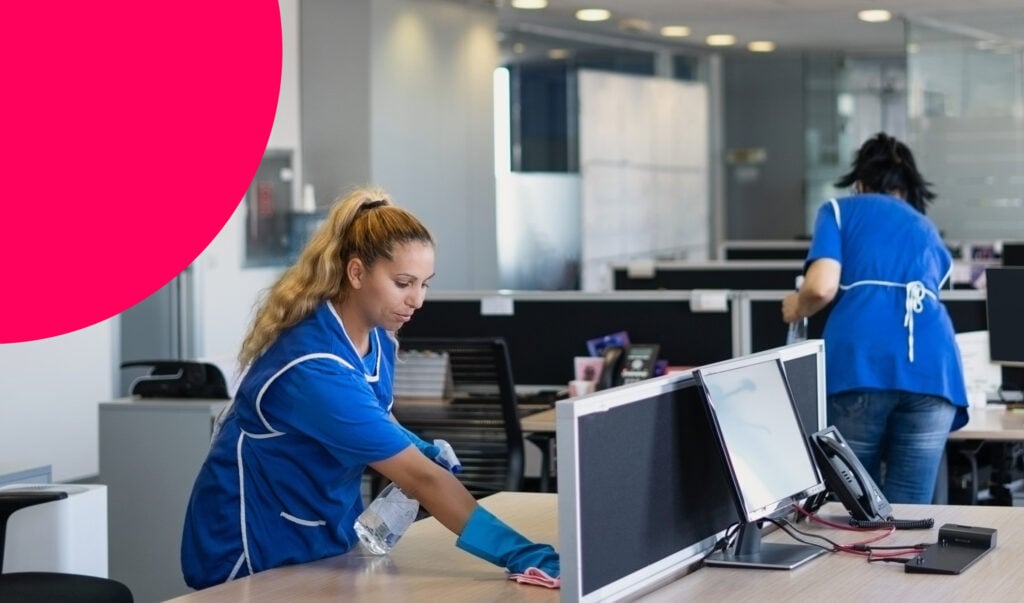Driving better ESG risk assessment with Sedex’s 340,000 data points
Our leading risk tool offers insights across thousands of risk scores, helping businesses assess and compare supply chain risk.
Companies face increasing demands from customers, investors and regulators to manage sustainability risks in their supply chains. Accurate data and the technology to analyse these at scale is a must.
Sedex has updated our risk tool, with the latest data from our sources, alongside other improvements. These updates ensure we’re providing Sedex members with the best possible insights to help them efficiently assess, compare and act on environmental, social and governance (ESG) risks in supply chains spanning continents and industries.
Scalable risk assessment for global supply chains
Sedex Risk Assessment enables businesses to assess suppliers, products and sectors at scale, saving time and money. Its in-depth insights support companies to make data-driven decisions, focus their resources on the highest-priority risks, and take action to drive meaningful impact. Over 850 companies have used Risk Assessment tool since its launch in 2020.
Across 248 countries, 99 industries and 14 issue areas, Sedex Risk Assessment provides over 340,000 unique risk scores. These scores, on a scale of 0-10, cover issues such as forced labour, business ethics, gender discrimination, water stress and other environmental issues. The higher the score, the higher the risk.

Image shows how to select an industry to view country-by-country risk scores in Sedex Risk Assessment, using the “Mining and quarrying” industry as an example. Source: Sedex Risk Assessment tool
Contact Sedex for a demo of the Sedex Risk Assessment tool
Data-driven risk scores
Sedex Risk Assessment’s scores are calculated using a custom algorithm that draws on hundreds of data points from independent, authoritative sources on social and environmental risks.
Sources include the International Labour Organization, The International Trade Union, Confederation’s Global Rights Index, The World Bank, The World Economic Forum and Yale University, amongst many other credible bodies.
Where a company holds data in the Sedex platform about the people, suppliers and work sites in their supply chain, Sedex Risk Assessment incorporates this to provide increased insight – through a unique risk score for every site.
Sedex member Waitrose & Partners says:
“Responsible sourcing is at the heart of Waitrose & Partners, as we are a co-owned business that prides itself on ensuring the lives of all workers is respected. We are able to champion responsible sourcing through ethical supply chain due diligence by using Sedex Risk Assessment tool, as it allows us to analyse site-level risks to ascertain where there are risks and how salient they are. We then use this information to determine audit frequency for the next stage of our ethical compliance programme,”
What’s new for 2022:
We’ve added a new source for our “health, safety and hygiene” scores to reflect the increased risks climate change poses to workers’ health. This source[1] looks at how vulnerable a country is to climate change and other challenges in comparison to how ready it is to improve its resilience against them.
Sedex member Remy Cointreau says:
“Sedex Risk Assessment tool is an integral part of our supplier risk assessment and management process. We use the tool to build visibility of suppliers’ risk levels across nearly two hundred work sites, and can monitor these at scale. We create a criticality grid using the risk scores to help us focus our risk management activities. If suppliers are in a high-risk zone, we conduct corporate social responsibility (CSR) audits and develop action plans to reduce the level of risk at work sites.”
Jon Hancock, CEO, Sedex says:
“Supply chains are long and complex, with businesses often unaware of the risks they face. The right technology and data are critical for a company to build visibility of all their suppliers and understand where the greatest risks are, to respond accordingly. We provide businesses with a scalable, manageable way to do this, so they can prioritise their efforts and ultimately run more transparent, sustainable operations,”
Get support with ESG risk assessment
Sedex’s Consulting team can support your business to identify, understand and prioritise where to act on the risks in your supply chain.
Our experts can also provide guidance on what supply chain laws apply to your company, help to develop your responsible sourcing programme, and more – delivering bespoke solutions with lasting value for your business.
[1] The ND-GAIN Country Index from the University of Notre Dame, which summarises a country’s vulnerability to climate change and other global challenges in combination with its readiness to improve resilience. Learn more here: https://gain.nd.edu/our-work/country-index/


